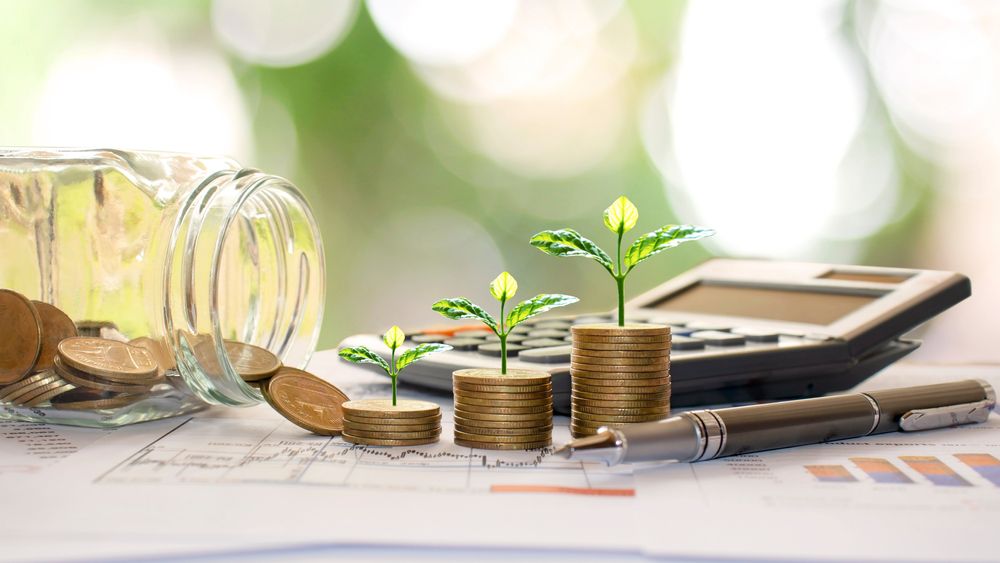
In an era where the health of our planet is as crucial as our own, it’s imperative to intertwine the principles of sustainability into every aspect of our lives. This includes the way we manage our finances. Sustainable budgeting isn’t just about saving money; it’s about investing in a future that is environmentally sound and financially secure. As we navigate through the murky waters of our current climate crisis, making eco-friendly choices within your financial plan is a positive step towards a brighter, greener future.
Understanding the Core of Sustainable Budgeting
At the heart of sustainable budgeting lies the understanding that our financial choices have a direct impact on the environment. This means prioritizing products and services that are not only good for your wallet but are also kind to the Earth. It starts with being conscious of where your money goes. Supporting companies that adopt sustainable practices, investing in renewable energy, and reducing waste are just a few ways to make your budget more environmentally friendly.
The first step towards sustainable budgeting is to audit your current spending habits. Look at your purchases: do they align with your values for a sustainable future? This might mean opting for a slightly more expensive energy-efficient appliance that will save you money in the long run or choosing to buy from local farmers to reduce carbon footprint. By understanding the core of sustainable budgeting, you can begin to make informed decisions that benefit both your finances and the planet.
Going Green with Your Groceries
One of the most straightforward areas to implement eco-friendly choices is your grocery shopping habit. Sustainable budgeting in the kitchen means buying organic, local, and seasonal produce. While organic foods can sometimes be more expensive upfront, they support better farming practices and reduce the amount of harmful pesticides and chemicals entering our ecosystems.
Buying in bulk can also lead to significant savings and reduction in packaging waste. Consider investing in reusable containers and bags to minimize the impact of single-use plastics. Additionally, planning your meals can reduce food waste, which is not only good for your wallet but also decreases the amount of organic waste that ends up in landfills, thereby reducing greenhouse gas emissions.
Investing in a Green Home
Your home is likely one of the largest expenses in your budget, which makes it a prime candidate for sustainable improvements. Investing in energy-efficient upgrades can lead to substantial savings over time. Think insulation, double-paned windows, LED lighting, and energy-efficient appliances. Additionally, consider the possibility of solar panels. While the initial investment may be significant, the long-term savings and environmental benefits are substantial.
Another aspect of a green home is water conservation. Low-flow toilets, showerheads, and faucets can significantly reduce your water usage. These changes not only lower your utility bills but also conserve a precious natural resource. When it comes to home maintenance, opt for non-toxic, eco-friendly cleaning products, which are better for both your health and the environment.
Transportation: Driving Towards Sustainability
Transportation can be one of the biggest monthly expenses for many individuals, as well as a significant source of carbon emissions. Sustainable budgeting in this category involves considering alternatives to the traditional gas-guzzling car. Could you bike to work, use public transportation, or join a carpool? Not only do these options save money on gas, maintenance, and parking, but they also reduce your carbon footprint.
If driving is unavoidable, consider investing in a fuel-efficient or electric vehicle. These cars may have a higher upfront cost, but they offer long-term savings on fuel and maintenance, not to mention tax incentives in some regions. Regular vehicle maintenance also ensures that your car runs efficiently, further cutting down on unnecessary environmental and financial costs.
Conscious Consumerism
The power of the purse is real, and as consumers, we have the ability to drive change with our spending. Conscious consumerism is about making purchasing decisions that reflect your commitment to sustainability. This means buying less but choosing well. Look for products made from sustainable materials with ethical labor practices. Support brands that give back to environmental causes or invest in sustainable innovation.
It’s not just about what you buy, but also what you don’t buy. Resist the urge for impulsive purchases that lead to clutter and eventually, waste. Instead, focus on quality items that will last and can be repaired or repurposed. This mindset not only leads to a lighter ecological footprint but also cultivates a sense of mindfulness and appreciation for the possessions we have.
The Role of Savings and Investments
A sustainable budget isn’t just about spending; it’s also about how you save and invest your money. Eco-friendly investment options, like green bonds and socially responsible investment funds, allow you to grow your wealth while supporting environmental initiatives. When it comes to savings, consider banks that have a track record of investing in green projects or have strong corporate social responsibility practices.
An emergency fund is also a cornerstone of sustainable budgeting. By having savings set aside for unexpected expenses, you can avoid debt and the stress that comes with it. This financial cushion enables you to make thoughtful, environmentally-conscious choices without the pressure of immediate financial need.
Sustainable budgeting is a journey towards integrating eco-friendly choices into your financial plan. It’s about being intentional with every dollar and understanding the impact your spending habits have on the environment. By focusing on areas such as groceries, home energy use, transportation, consumerism, and investments, you can craft a budget that supports a healthier planet while securing your financial future.
As you embark on this path, remember that every sustainable choice, no matter how small, contributes to a larger collective effort to protect our Earth. By aligning your financial decisions with your environmental values, you’re not just budgeting for today; you’re investing in a greener, more prosperous tomorrow for all.
